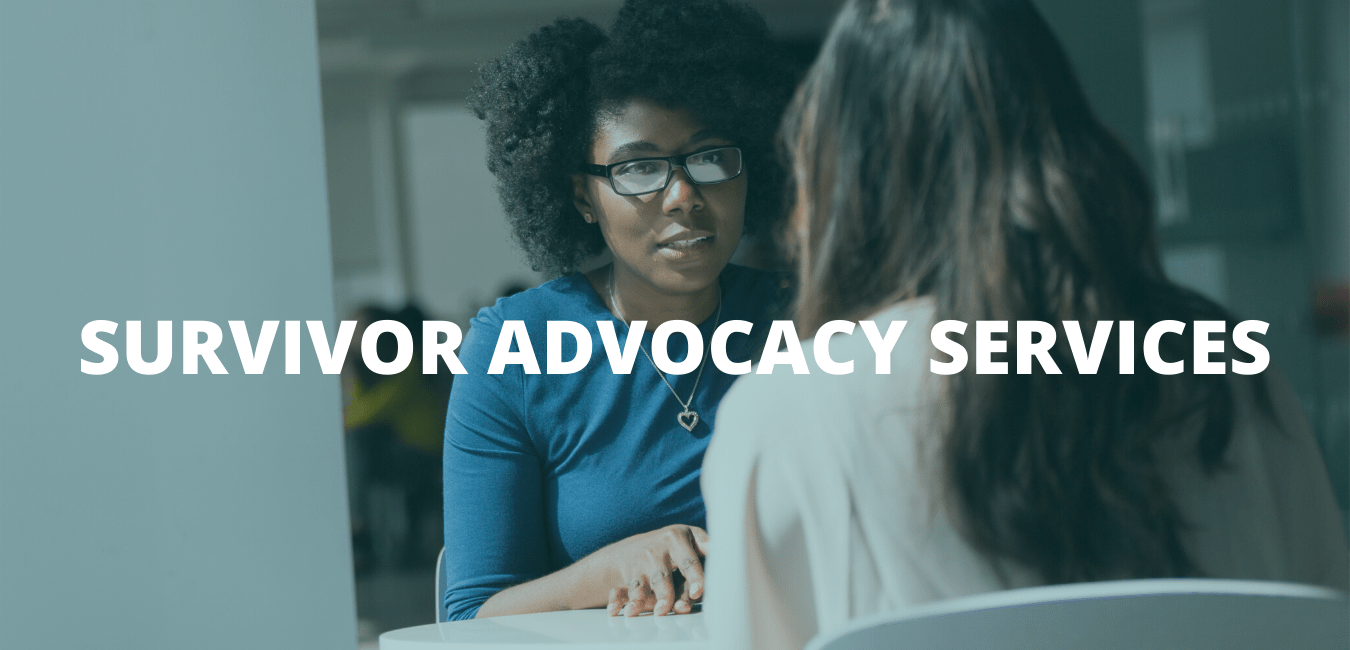Help
Emergency Exit
Helpful Numbers
UTC Police Department
423-425-4357
University Health Services
423-425-2266
Dean of Students
423-425-4761
Counseling Center
423-425-4438
Title IX Coordinator
423-425-4255
Family Violence and
Sexual Assault HOTLINE
(24 Hours)
423-755-2700

HELP FOR SURVIVORS AND FRIENDS
Whether you are a survivor or a friend of a survivor, it can be difficult to ask for help.
Gender-based violence, by its nature, causes feelings of helplessness. It is important to know that help and support are available. Survivor Advocacy Services offers FREE and CONFIDENTIAL advocacy to all UTC students, staff and faculty.
For help, contact Emily Rosenquist, primary victim advocate, at 423-425-5648 or [email protected].
If there is an immediate threat, call 911 (off-campus) or 423-425-4357 (on-campus).
WHAT TO DO IF...
-
I am sexually assaulted
-
- Get to a safe place.
- Talk to someone you trust.
- Preserve the physical evidence: If at all possible don't change clothes, bathe, brush your teeth, or use the bathroom. Collection of evidence is conducted at the Partnership's Rape Crisis Center.
- Seek medical attention: The Partnership and University Health Services can provide basic medical services. For severe injuries, call 911.
- Seek counseling. FREE and CONFIDENTIAL counseling is available at the UTC Counseling Center.
- Report the incident to the police if you wish to pursue criminal charges or the UTC victim advocate for FREE and LIMITED CONFIDENTIAL advocacy services.
-
I am in an abusive relationship
-
- Ask for help...even if you aren't ready to leave.
- Everyone leaves at their own pace, but it is important to develop strategies to stay safe both within the relationship and if you choose to leave.
- Create a safety plan with the help of an advocate. FREE and LIMITED CONFIDENTIAL advocacy services are available through the Survivor Advocacy Services.
- Develop and nurture support systems.
- Consider counseling to help nurture self-esteem and healthy boundaries. FREE and CONFIDENTIAL counseling is available at the UTC Counseling Center.
- Report violent incidents to the police or at least document the incident if possible.
- Consider applying for an Order of Protection.
-
I am being stalked
-
- Document everything, even if it seems trivial.
- Create a safety plan with the help of an advocate. FREE and LIMITED CONFIDENTIAL advocacy services are available through the Survivor Advocacy Services.
- Develop and nurture support systems.
- Notify law enforcement and the University officials as soon as possible.
- Consider applying for an Order of Protection.
HOW CAN I HELP A FRIEND?
Make sure they aren't in immediate danger. If they are, call 911.
If someone confides in you that they are, or think they might be, the victim of sexual assault, dating violence, stalking, or other forms of violence, here are some ways you can help:
-
Sexual Assault
-
- Give them their options, but let them decide what they want to do.
- Remember that the perpetrator has taken power and control from your friend; let them take back control.
- Make it clear that you believe them and don't blame them.
- "I'm so sorry this happened to you."
- "It's not your fault."
- "You didn't deserve this."
- Don't press them for details. It can seem like blame.
- Be a supportive and caring friend, but also take care of yourself
-
Relationship Violence
-
- Do not victim blame. The abuser spends a lot of time blaming, don't pile on.
- Do not trash the abuser. Your friend may still care about the person even if they don't like their behavior.
- Do not make ultimatums. If you tell them you can't be their friend if they don't leave, you are only isolating your friend and helping the abuser.
- Understand that leaving is a process and it is never as easy as just walking away.
- Understand that abusers are at their most dangerous when they lose control of the victim. When an abuser says, "I'll kill you if you leave," they mean it.
- Help your friend develop and nurture support systems.
- Provide support as you are able, but remember to take care of yourself and remove yourself from potentially violent situations.
-
Stalking
-
- Believe the victim. Do not take their concerns lightly or assume they are overreacting.
- Help them understand their options, but don't force them to take certain actions.
- Support your friend and help the understand the seriousness of these crimes.
DOWNLOAD THE GUIDE FOR FRIENDS AND FAMILY
REQUEST A PRESENTATION
Thank you for your interest in bringing Survivor Advocacy Services to your organization, office, or event. Please complete the form information below. A team member will contact you within 3 business days.
(Contact form coming soon!)
OUR OFFICE
Survivor Advocacy Services is located in the Center for Women and Gender Equity within Lupton Hall. Appointments are encouraged but walk-in appointments are available. You can also contact us directly by email, [email protected].
